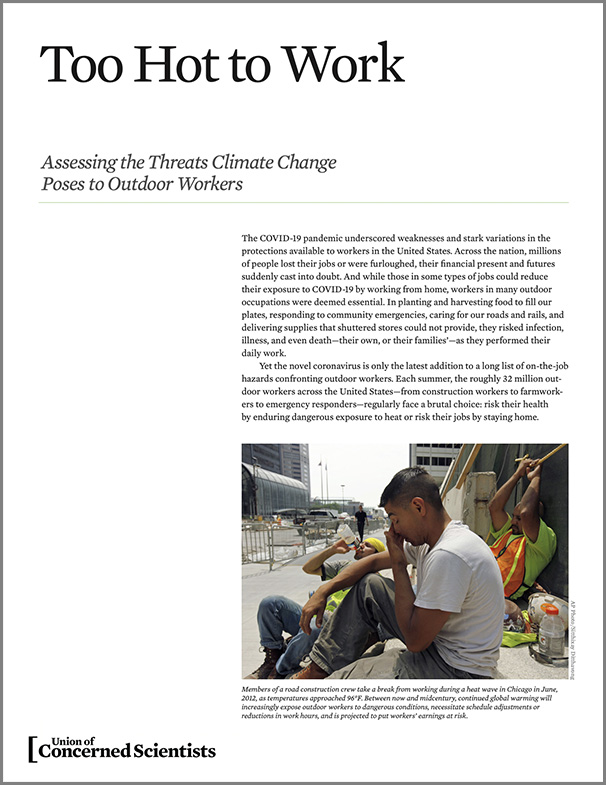Too Hot to Work: Assessing the Threats Climate Change Poses to Outdoor Workers
This research finds that between now and 2065, climate change will quadruple U.S. outdoor workers’ exposure to extreme heat conditions, jeopardizing their health and placing up to $55.4 billion of their earnings at risk annually if no action is taken to reduce global warming emissions. With no action to reduce emissions, the average outdoor worker risks losing more than $1,700 in annual earnings due to lost work days from extreme heat. Workers in the 10 hardest-hit counties risk losing nearly $7,000 per year on average.
People of color are disproportionately represented in some outdoor occupations. Over 40 percent of U.S. outdoor workers identify as African American, Black, Hispanic or Latino, despite these groups comprising about 32 percent of the general population. These workers risk losing an estimated $23.5 billion in annual earnings by midcentury, which could exacerbate existing inequities resulting from centuries of systemic racism, such as lack of access to quality health care and adequate cooling, as well as underfunded social services. Language barriers, pay structures, and concerns about immigration status currently leave some workers with little recourse should they experience dangerous working conditions. No one should be put in a position where they have to choose between their income and their health.
Find the full report and all accompanying materials here:
Too Hot to Work: Assessing the Threats Climate Change Poses to Outdoor Workers.
All materials are also available in Spanish.
More Extreme Heat Resources:
Video conveying the topline findings of the report
Mapping tool – A geographic view of the data, down to the county-level

